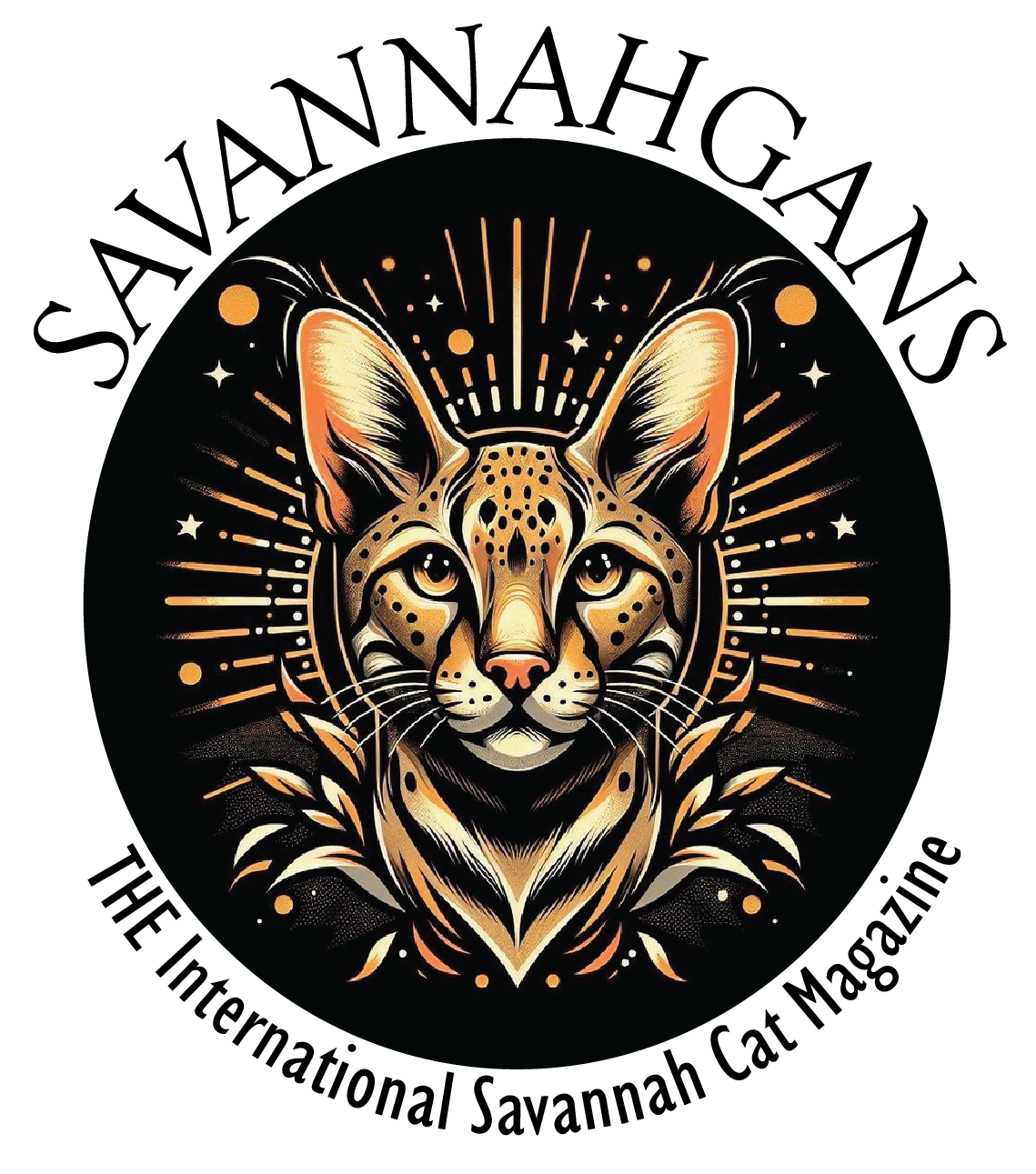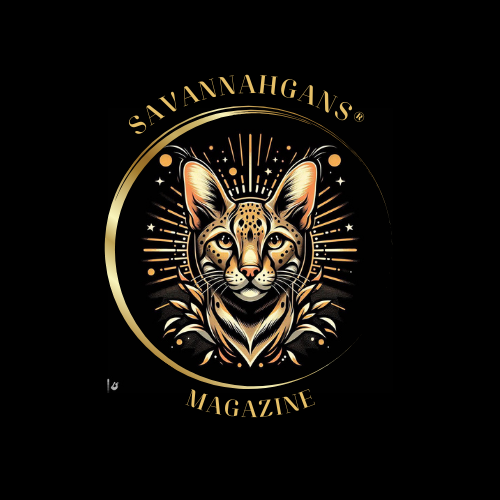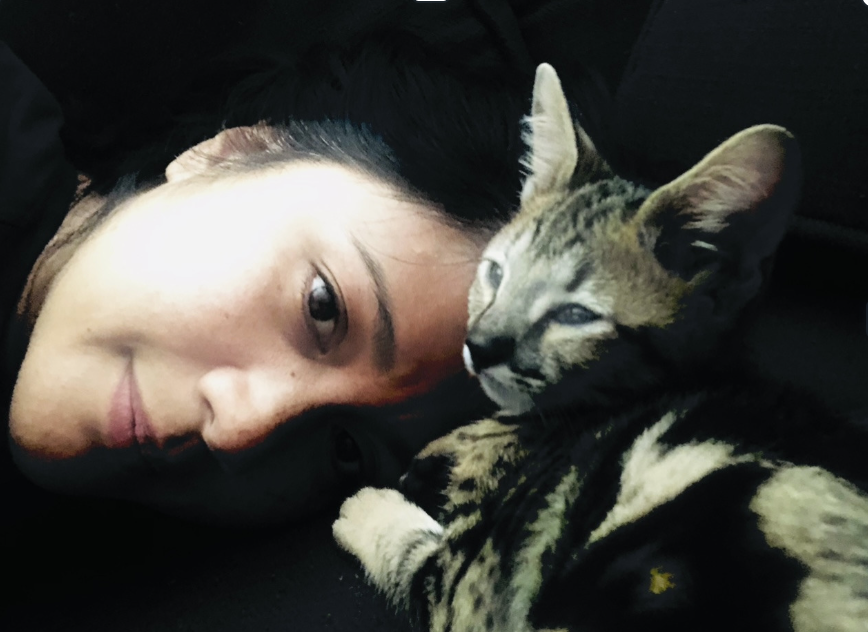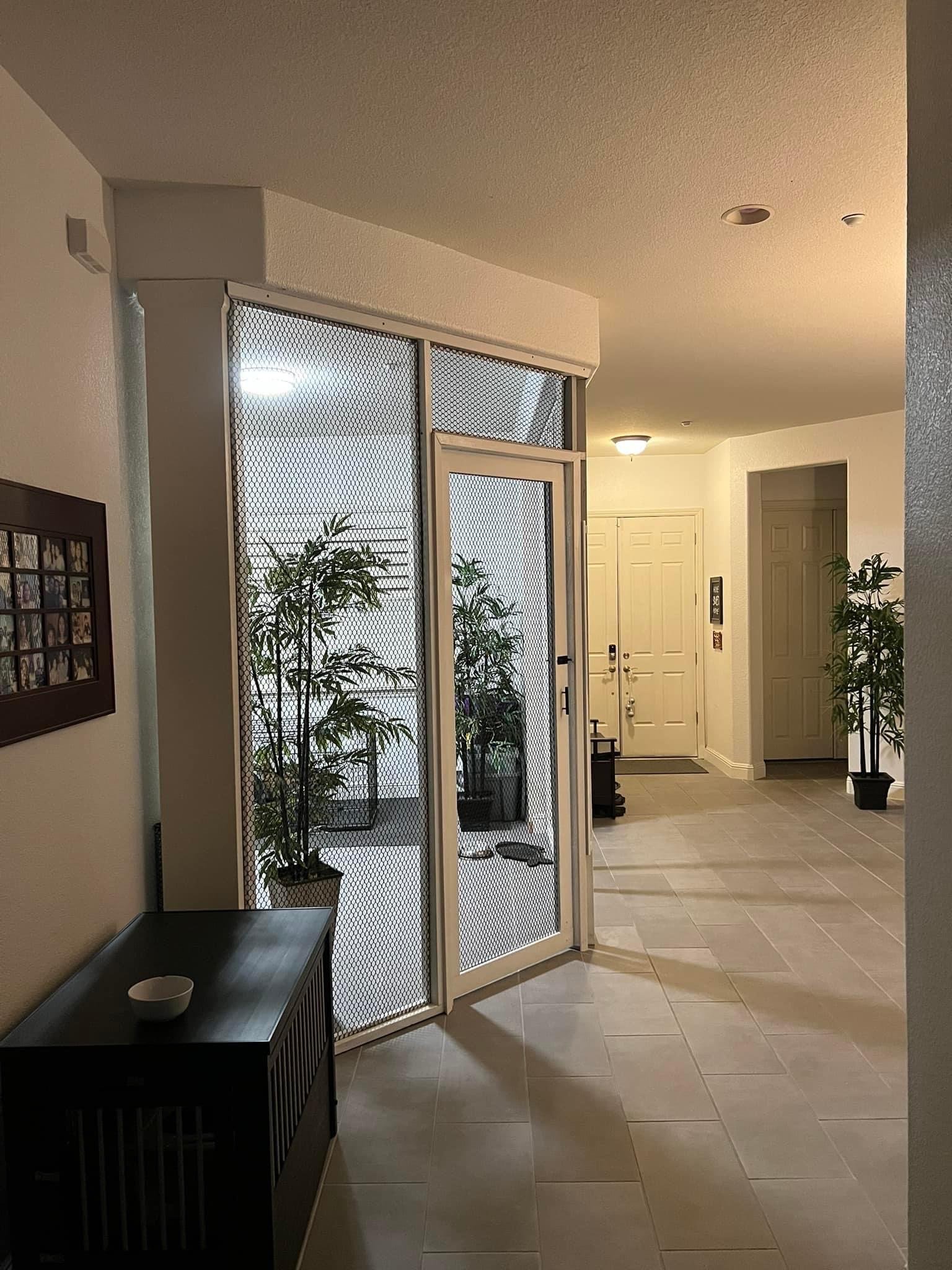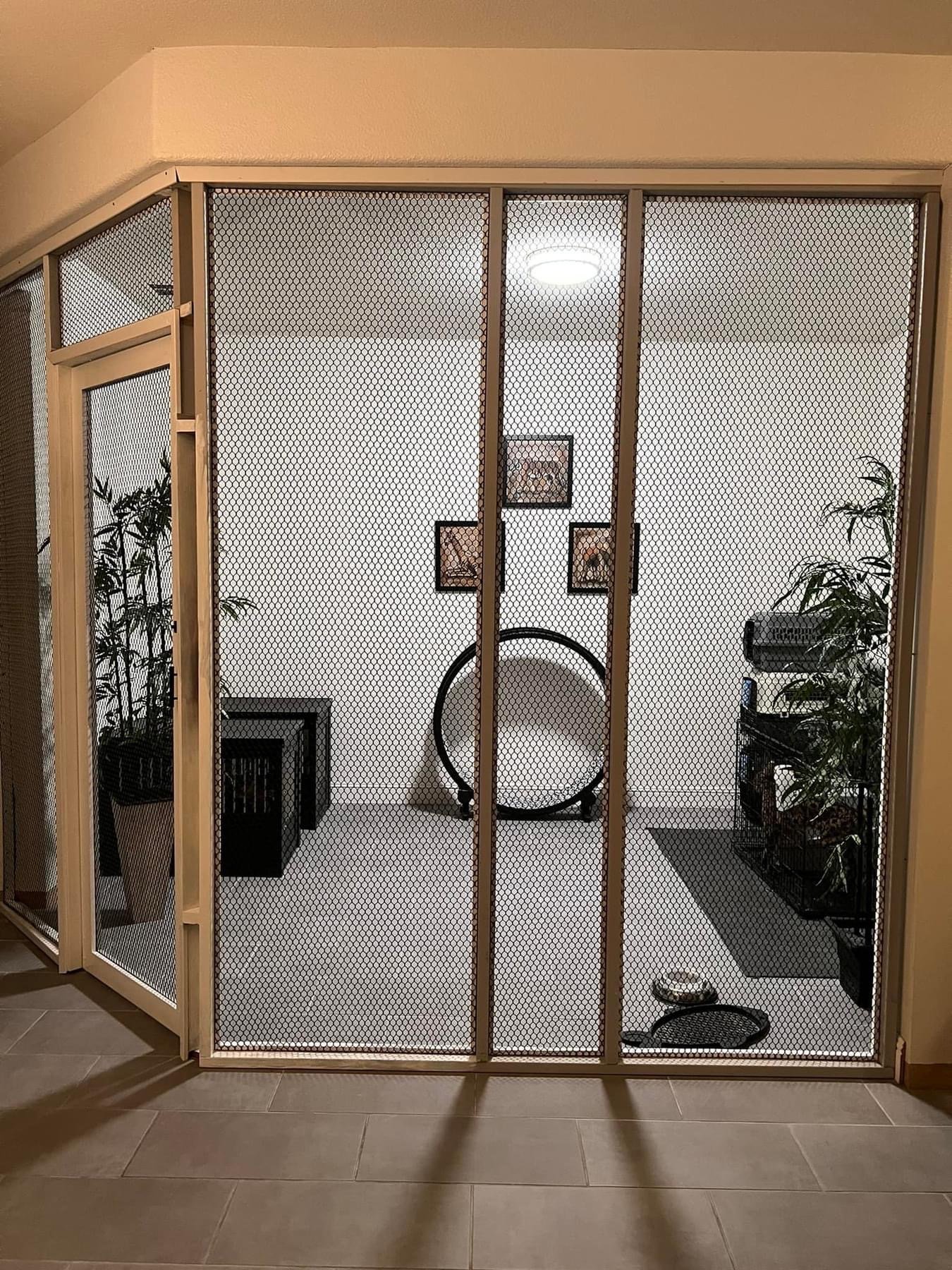An Interview With Savannah Cat Breeder Cindy del Rosario of Bay Area Savannahs
Please tell us about your location, background, family, past or current occupation(s) (besides 24/7 cat mamma )
I’m a mom to two daughters, Jenna and Mickey, and I have a husband, Mikey, with whom I’ve been in a relationship since 1996 (married in 2003). I’m also a full-time software engineer at Apple and worked for eBay for 14+ years prior. I love spending time with family and my fur babies and watching and participating in my girls' sports activities (water polo, swimming, and volleyball). I enjoy being a super homebody and binge-watching TV series and movies to rest, relax, and pass the time. And my other passion in life has been cars and fixing them up since I was a kid. I happily share that hobby with my husband.
How did you get started with Savannah breeding?
Growing up, I was always a huge dog lover and had cats. In 2013, my family decided to get a couple of Bengals as family pets. While we loved our Bengals, my husband was adamant about adding a Savannah cat to our family. We got an F2 Savannah female from WESA Savannahs (her name is “Nugget,” a.k.a. “Nuggetina”), and the rest is history. I fell completely in love with the breed, particularly their temperaments/personalities and, of course, their striking looks. Thus, began my journey in breeding.
How long have you been breeding Savannahs?
My journey began in 2013, and we had our first litter in 2015.
Is your family involved with your cattery work?
My family is involved. My husband, Mikey, has the role of cattery handyman and builder. He's helped maintain, clean, and build our enclosures and cattery living spaces. He's been very supportive of me throughout my journey as a breeder. He helps me emotionally and physically concerning heavy lifting associated with cleaning, socializing the kittens, and being a pillar of strength and shoulder to cry on when times can be tough. He also travels and drives with me to shows. My two daughters, Jenna and Mickey, also have an active role in the cattery (more so when they were younger). They've accompanied me to the TICA shows, helped show some of our cats, worked as show stewards, and are a huge help with the socialization of the kittens. They help handle them and often keep them in their rooms. When kittens are around loud, active kids, they become more familiar with the sounds of a busy household.
What's your typical daily routine at your cattery from morning to evening?
My morning cattery routine starts early (on average, 5 AM, sometimes earlier). I am grinding chicken, prepping food plates, feeding, topping off water, cleaning litter boxes, enclosures, and rooms, and playing with the kittens and adults (on a rotation schedule). This all occurs in the mornings before work. After work, feeding and more play and socialization time happen. The cycle is repeated the next day. I designate weekends for more thorough cleanings, cattery projects, and grocery runs for raw ingredients (i.e., chicken and kibble, depending on what we need to stock).
What's the best part about breeding?
The best part of breeding is finding the purrfect match for our fur babies to families. We love seeing them thriving, spoiled, and very loved in their homes.
What's the worst/most challenging part about breeding?
Fur baby deaths and having to retire or rehome adults are the hardest parts of breeding. We become very attached to our babies, kitten, and adults. It's always difficult when any of them cross the Rainbow Bridge or leave our home. With nearly ten years working with Savannahs, this is still my most challenging part.
Did you or do you have a breeder mentor(s) you wish to acknowledge?
I've been very fortunate to have a few peers in the Savannah community who've helped when I needed guidance concerning topics such as health, diet, shows, TICA, genetics, the market, marketing, the community, and breeding goals. They've helped me with the business aspects of testing, contracts, conflict resolution, moral support, ethics around breeding, and amongst other breeders. I want to pay special thanks to a couple of them. One is Lynda Ryskamp of Salem's Pride Savannah, for being my "indirect mentor." She's a massive part of who I am as a breeder and the program I have today. She's taught me so much about breeding, looking at all aspects. She's been super helpful in defining goals around how I can continue to contribute and help improve the Savannah breed while constantly looking at the bigger picture. The other is Brigitte Cowell Moyne, President at Savannah Cat Rescue and owner of Kirembo Savannahs, who, over the years, has always been there for any questions I've had around health issues, showing, rescue, rehoming, and handling conflicts. The list goes on and on. She has a wealth of knowledge of everything and anything related to Savannahs and has been a great peer to know and reach out to in the community.
Have you mentored other breeders, and if yes, who?
I’ve never officially mentored other breeders. However, I try to help anyone who reaches out with questions and is looking for advice on handling certain situations that come up with breeding.
What's the best breeding tip or advice you've received from another breeder?
Always focus on the type (per the Savannah Breed Standard) and not just color and spots.
Not every kitten in a litter is breeder quality.
Be discerning where you place your fur babies, pet and breeding-wise.
Always look at breeding as a whole, i.e., from breeding to TICA to showing, ethics, the market, our peers, and the community.
Don't overlook an extremely typey cat due to a locket, a non-standard color/pattern, being a carrier of a gene that doesn't affect the cat, etc. We can breed out these traits by breeding downwards and holding back cats that are clear while at the same time not limiting the gene pool.
Don't sell to just anyone who wants to breed, i.e., folks looking to recoup/make monies who have no interest in improving the breed but don't have a TICA-registered cattery. Also, avoid those who don't appear to have a good mentor or you're unwilling/able to mentor them yourself.
Help prepare new breeders for success by ensuring they have good mentorship. Encourage them to attend cat shows or participate in one so they learn what to look for when purchasing breeding cats. Help guide them on their journey as needed.
We, as breeders, are always learning.
What are the biggest strengths AND weaknesses of the Savannah breed?
We have a big community and a strong group of passionate people dedicated to Savannah cat rescue. However, we need more "typey" SBTs, more TICA registrations (particularly SBTs), more diversity in the gene pool, and more people showing Savannahs at the show halls.
What should new breeders know they may not have considered that you've learned from breeding?
It's good to have diversity in the lines you work with and, for those interested, to breed downward and hold back to help with diversity and create your lines. Also, when seeking help and advice, please get opinions and feedback from a few sources and different perspectives in conjunction with research. Then, you can reflect on the information you've gathered to make more informed decisions about what's best for your cats, your program, you, and all parties involved.
Do you feed your Savannahs and kittens a raw diet, and do you recommend raw feeding to new owners? Why/Why not?
We feed a raw chicken diet ground with bone, gizzards, hearts, chicken liver, feline Wildtrax supplement, and kibble. I recommend this diet to our families (or a combination of wet and kibble as an alternative for those who opt out of raw feeding) to help keep the cat's digestive tract healthier.
Do you have a favorite(s) Savannah Cat website or cattery website that stands out you wish to acknowledge?
Savannahgans.com and Savannahcat.com. They are great platforms for viewing TICA registered breeders and learning more about the breed.
Have you bred any other type of cat or animal besides Savannahs?
We have an older Bengal pet male, Fiercey, who has been in our family since breeding savannahs, and two low-content wolf-hybrid dogs, Rebel and Retro. We have never produced any other breed of cats.
What concerns do you have regarding the future of the Savannah breed?
Too many intact breeding cats are sold to folks who've yet to learn the Breed Standard or have proper mentorship. I'm also concerned about the need for more diversity in the gene pool, as it can be difficult to find unrelated cats for breeding programs. There's also an ever-growing number of breeders focussing solely on earlier generation Savannahs. We need more folks who will breed downward, concentrating on the later generations to help with the diversity problem. I'm uncertain what the future holds for the breed--it's a bit scary.
What is your favorite(s) generation to breed and why? What generations do you produce?
SBTs, hands down. I feel we need more typey Savannahs at the later generation levels to show, help promote the breed, and to help contribute towards the diversity in the Savannah gene pool.
Do you attend cat shows, and if yes, what's your highest achievement?
I do attend shows, but not as often as I'd like. Our cat "Sindel" won the Mid-Pacific region's "2022 Best Savannah Of The Year" award (RW Bayareasavannah Sindel). She also obtained her Double Grand Champion status with TICA.
What else would you like the Savannah world to know about you and your cattery?
Bay Area Savannah Cats is an in-home cattery where all of our Savannahs are part of our family, which includes me, my husband, our two girls, and our wonderful fur babies. We have kittens available throughout the year, primarily in the fall, winter, and spring months. So, if you're looking for Savannah kittens in California, don't hesitate to contact us. We'd love to help you on your journey, even if it means not adopting your fur baby from us. Our goal is to help you find the right kitten and match for your family and home. Our focus has been on contributing to the improvement of the Savannah breed. A small portion of our program is the F2 and F3 Savannah kittens. Our passion has always been to work with the lower generations, thus our specialization in F6 and f7 Savannah cats.
Our website: www.bayareasavannahcats.com
Facebook: www.facebook.com/bayareasavannahcats
Brentwood, California
510-329-2411 (text first and then call)
Help SAVANNAHGANS® Grow and Reach Every Savannah Cat-Owning Household! All support is humbly appreciated (visit the clickable underlined links).
Subscribe (free) HERE
Share this article on your social media platforms.
Leave a Comment. (this is VERY helpful to our growth and Google recognition)
Follow on Instagram.
Follow on Pinterest
